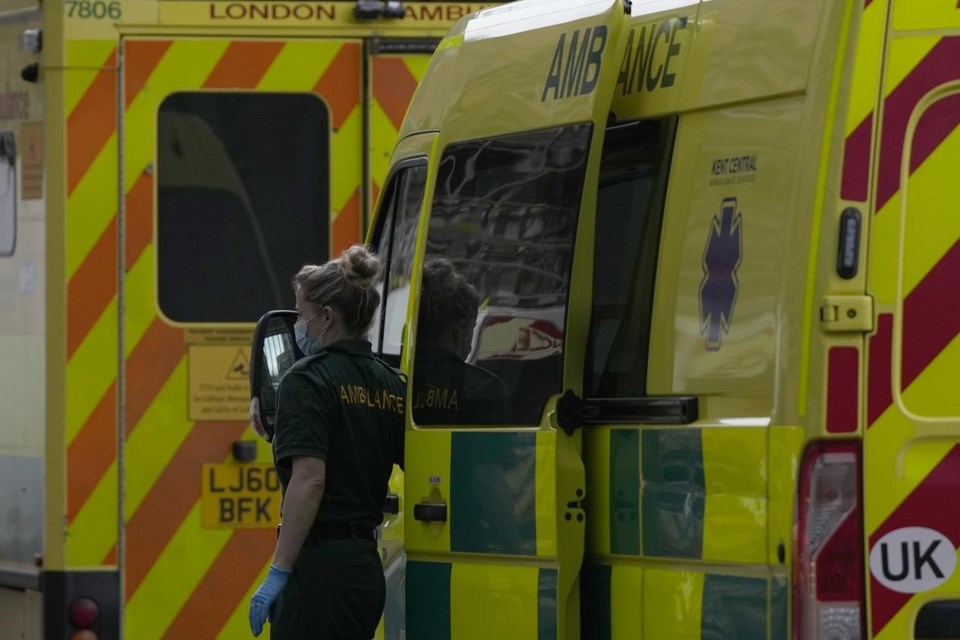LONDON (AP) — British Prime Minister Rishi Sunak gathered government ministers, medics and health service managers in 10 Downing St. on Saturday for talks aimed at fixing a health care crisis that has seen thousands of patients stranded outside overflowing hospitals.
The government said it was “bringing together the best minds from the health and care sectors to help share knowledge and practical solutions.”
The opposition Labour Party dismissed the gathering as “a talking shop,” and experts warned there are no quick fixes for long-brewing problems in the state-funded National Health Service.
Britain’s health system faces an inferno of pressures, including rising demand for care after pandemic restrictions were eased; a surge in flu and other winter viruses after two lockdown years; and staff shortages from pandemic burnout and a post-Brexit drought of European workers in the U.K.
Thousands of hospital beds are occupied by people who are fit to be discharged but have nowhere to go because of a dearth of places for long-term care. Official figures show that last week only a third of patients ready to be released from a hospital in England actually left.
That has led to ambulances stuck outside hospitals with patients who can't be admitted, and in turn to people with health emergencies waiting hours for ambulances to arrive. Health leaders say the delays have likely led to hundreds of deaths.
On top of that, a cost-of-living crisis fueled by soaring food and energy bills has left some health workers struggling to make ends meet. Nurses and ambulance crews have staged walkouts, part of the country’s biggest wave of strikes in decades.
The pressures have renewed a long-running debate about how to fund and run the NHS, set up in 1948 to provide free care to all, funded through taxation. As in other industrialized countries, longer life expectancies and an aging population have increased demand on the widely beloved but constantly overstretched service. Britain’s NHS has long been a political hot potato. Opposition politicians accuse the Conservative Party, in power since 2010, of consistently underfunding the health service or seeking to privatize it by stealth.
Matthew Taylor, chief executive of health service umbrella body the NHS Confederation, said “this crisis has been a decade or more in the making.”
“High levels of flu, respiratory syncytial virus and rising COVID levels are exacerbating the problem but the cause is decades of under-investment in staffing, capital and the lack of a long-term solution to the capacity-crunch facing social care,” he said.
The government says health funding continues to rise in real terms. It says public sector workers are being offered pay increases but that it can’t afford to give out raises to match inflation, which hit 11.1% in October.
Health union leaders are due to meet the government on Monday in an attempt to end the strikes.
Britain is not the only country in Europe struggling to ensure health care. French President Emmanuel Macron on Friday announced plans to overhaul France's struggling health system.
Jill Lawless, The Associated Press



